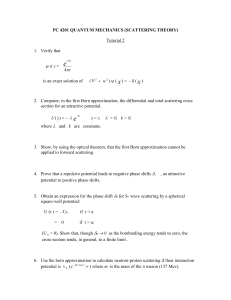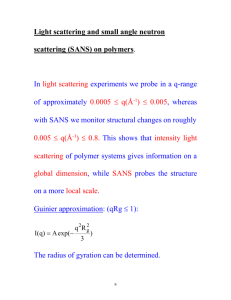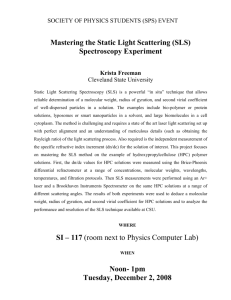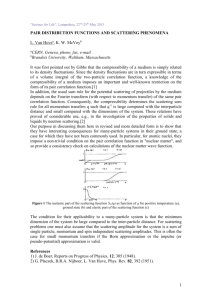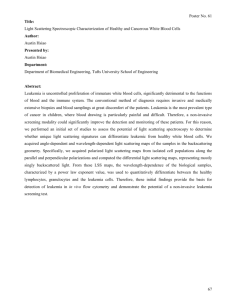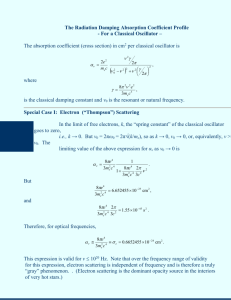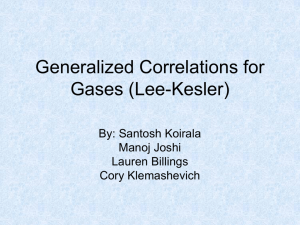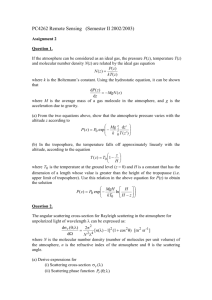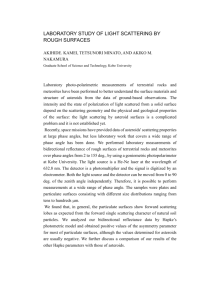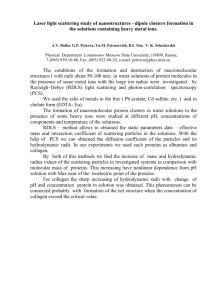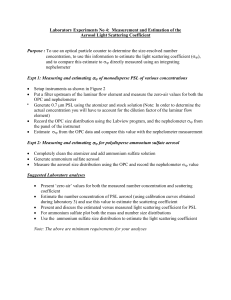Virial expansion in the unitary limit
advertisement
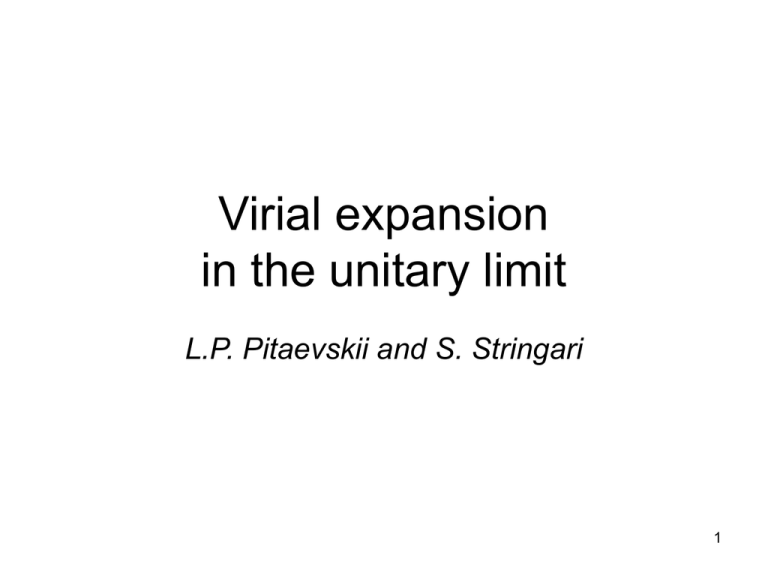
Virial expansion in the unitary limit L.P. Pitaevskii and S. Stringari 1 Basic conditions Let us the gas is weakly degenerated: n 1/ 3 T mT 1 but cold enough: T r0 mT 2 r0is the size of an atom. Gas is classical from the thermodynamic point of view, but atom-atom collisions are quantum. 2 Large scattering length Due to the condition (2) only s-scattering is important. Near the Feshbach resonance swave scattering length can be large with compare to T : a r0 mT (3) 3 Diluteness Due to the unitarity condition the s-wave scattering amplitude is restricted | f | ~ T . p Then the diluteness condition follows from (1) n | f | 1. 3 4 Virial coefficient The equation of state of the gas accounting for the second “virial” correction is PV nT1 nBT In the absence of interaction: BT B,F id 3/ 2 1 , g 2s 1 2 g mT 2 g=1 for spinless bosons (upper sign) and g=2 for s=1/2 fermions 5 Interaction Contribution of the interaction in s-channel to the virial coefficient (E. Beth, G. Uhlenbeck, 1937): Bint T G8 mT 2 3/ 2 | | 1 k d dk e T e mT 0 dk 2 2 G (s 1) /(2s 1) for bosons andG s / ( 2s 1 ) for fe rmions . 0 is the s-wave scattering phase shift, is the bound state energy (if the state exists), k is the wave vector of relative motion. 6 Scattering near Feshbach resonance We consider vicinity of the Feshbach resonance where the s-wave scattering length is large comparing to the thermal wave-length T a mT (4) This is the unitarity limit. 7 Positive a means existence of a bound state with small negative energy 2 , 2 ma T The phase of s-wave scattering is tg ka, (5) The scattering amplitude is a f 1 ika 8 Calculation of the virial coefficient Equation (5) gives d a 2 dk 1 ka and using condition (4) 1 e 0 2k 2 mT d 1 a dk . dk 2|a| Contribution of the bound state is 0 if a 0 | | e T 1 if a 0 9 Results Finally Bint T G 4 mT 2 3/ 2 independently of value and sign of the scattering length. The derivation assumes that bound state is in equilibrium with continuum. The total (statistic+interaction) virial coefficient for spinless bosons is 3/ 2 9 B BT 9 BT id 2 mT 2 B 10 and for s=1/2 fermions BT F 3 4 mT 2 3/ 2 3BT F id In both cases the sign of the coefficient corresponds to effective attraction. 11
